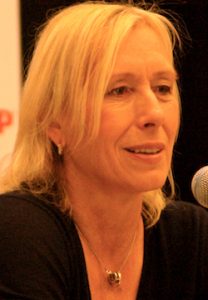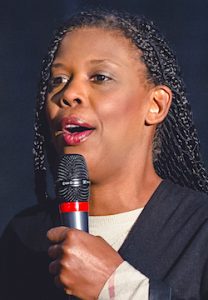5 Surprising, Diverse Public Figures Speak Out Against the Equality Act
House Democrats passed the far-reaching bill on Friday. Now diverse public figures and experts warn it could move covertly through the U.S. Senate.
On Friday, the U.S. House voted 236-173 to pass the Equality Act. If enacted, the sweeping proposal would impact businesses, schools, churches, and all places of public accommodation nationwide.
The bill revises the 1964 Civil Rights Act and other non-discrimination policies, adding “sexual orientation” and “gender identity” to characteristics such as race, color, and national origin.
Conservative analysts have called the bill a dangerous attempt to expand abortion services. Medical experts have lamented its potential harm to minors.
And Christian counselors have noted how these policies reflect confusion on sexuality issues in the church and culture.
Eight Republicans crossed the aisle to support the Equality Act and 16 Republicans did not vote. Three Democratic House members running for President — Seth Moulton (Mass.), Tim Ryan (Ohio), and Eric Swalwell (Cali.) — also abstained from voting on it.
Stealth Route Through the Senate?
Many observers assume the far-reaching proposal will be halted in the U.S. Senate. While the Trump administration has criticized the bill, he stopped short of a veto threat.
Family Research Council (FRC) has led the fight against the bill. The conservative advocacy group warns it could be enacted through multiple avenues.
“The Equality Act won’t pass the Senate, but the bill is not dead,” stated FRC senior legislative assistant Mary Beth Waddell via e-mail, who has tracked the bill for months. “It makes changes to approximately ten different civil rights laws. Democrats in both the House and Senate have introduced multiple bills that make those same changes, one civil rights law at a time.”
She noted Democratic leaders may use “less controversial” bills to pass parts of the comprehensive bill. “Given how harmful the Equality Act is, we should certainly remain vigilant,” said Waddell.
Several diverse public figures in politics and culture have publicly stated their concerns with the Equality Act.
1. Tennis Star Martina Navratilova Defends Level Athletic Playing Field
She is regarded as one of the greatest tennis players of all time. Now nine-time Wimbledon champion and lesbian rights activist Martina Navratilova has made enemies by speaking out against the bill.

Martina Navratilova
“The legislation would make it unlawful to differentiate among girls and women in sports on the basis of sex,” Navratilova wrote in The Washington Post with two other female sports stars.
“For example, a sports team couldn’t treat a transgender woman differently from a woman who is not transgender on the grounds that the former is male-bodied.
“The reality is that putting male- and female-bodied athletes together is co-ed or open sport,” they concluded. “And in open sport, females lose.”
International Tennis Hall of Famer Navratilova has been sparring online about this issue for months. Her concern is not merely about athletic feats, rather also for future female athletes who stand to lose scholarships.
“[Some say] there is ‘ample evidence that girls can compete and win against boys,’” she continued. “They are wrong. The evidence is unequivocal… in every sport except sailing, shooting and riding.
“Starting in puberty, there will always be significant numbers of boys and men who would beat the best girls and women in head-to-head competition. Claims to the contrary are simply a denial of science.”
2. Former Head of Log Cabin Republicans: “This Sets Back Equality”
Social conservatives rarely have common cause with the Log Cabin Republicans, an LGBTQ advocacy group. Yet their former president Gregory T. Angelo wrote publicly of his concerns regarding the non-discrimination bill.
“The Equality Act is legislation that would compromise American civil rights and religious liberty as we know it,” stated Angelo. “All reasonable Americans, especially gay Americans who support pluralism and tolerance, should oppose it.”
He noted the bill’s damaging effect on religious liberty and conscience rights. Angelo recalled rhetoric used in 2015 when the Supreme Court legalized same-sex marriage nationally.
“Gay advocates such as myself promised those we disagreed with that allowing same-sex couples to marry would have no effect on them, their families, or their faith,” he wrote. “Passage of the Equality Act would make liars out of the lot of us.”
3. Liberal Feminist Leader Kara Dansky Champions Women’s Safety
On Thursday, Congresswoman Vicky Hartzler, R-Mo., hosted a press conference featuring opponents of the Equality Act.
Kara Dansky, a board member of the left-leaning Women’s Liberation Front (WoLF), was a surprising inclusion among the speakers.
“To be clear, I am lifelong Democrat and a proud feminist,” began Dansky. “The people here with me today profoundly disagree with me about many issues. But we are here together to take a strong stand for the rights of privacy and safety for women and girls.”
“They will be forced to shower and share intimate quarters with biological men.”
Her message follows in line with the public letter WoLF co-authored with conservative group Concerned Women for America.
“For women in desperate and vulnerable circumstances, [their] public voice is barely a whisper,” wrote the coalition. “They will be forced to shower and share intimate quarters with biological men because others were too afraid to speak up for them.”
4. African-American Author Star Parker: “This Is Civil Tyranny”
It made national headlines when the NAACP endorsed the Equality Act in March. The black civil rights group stated its “solidarity” with LGBTQ advocates supporting the bill.

Star Parker
Many African-American leaders were not in lockstep. Author Star Parker leads the Center for Urban Renewal and Education (CURE). In her nationally syndicated column, she called out how the Equality Act contradicts the civil rights movement.
“Civil rights law was designed to protect human dignity,” she wrote. “[It] prevents individuals from being reduced to pre-existing realities not connected to their personal choices, such as race.
“Now with this law, the sexual behavior they choose, and the sex they decide they are, will receive the same protections.”
Parker described the bill as “oppression dressed up in language of freedom and justice.” She echoed those concerned for the safety of women.
“A bizarre list of behaviors will become legally protected,” she stated. “I will have to start to worry that my little granddaughter will encounter a man in the restroom who has a right to be there because he thinks he is a woman.
“We’re talking about civil tyranny, not civil rights.”
5. Respected Religious Freedom Advocate Condemns Stifling of Debate
The head of a nonprofit group focused broadly on international religious freedom spoke out regarding the bill’s effects if enacted.
Thomas Farr served 28 years in the U.S. Army and foreign service. Since then, the longtime Georgetown University professor founded Religious Freedom Institute (RFI) to defend fundamental human rights. RFI staff members are involved in dozens of nations worldwide.
“It purports to ban discrimination, but it actually bans disagreement.”
“Supporters of the Equality Act claim it will increase equality in America,” wrote Farr last week. “But it will actually harm one of the most fundamental rights we all share as Americans – religious freedom. It purports to ban discrimination, but it actually bans disagreement.”
Citing James Madison, father of the U.S. Constitution, Farr extolled the free exercise of religion as a foundation of U.S. democracy. Now that force for common good is under threat.
“The Equality Act will harm American democracy by privileging one view of sexuality and human nature, and silencing another,” he concluded. “But our lives together as one nation – ‘out of many, one’ – cannot long survive if one group of Americans employs the force of law to silence others.”
Learn more in the video below and explore The Stream’s complete Equality Act coverage. Sign up to receive top stories every week.







